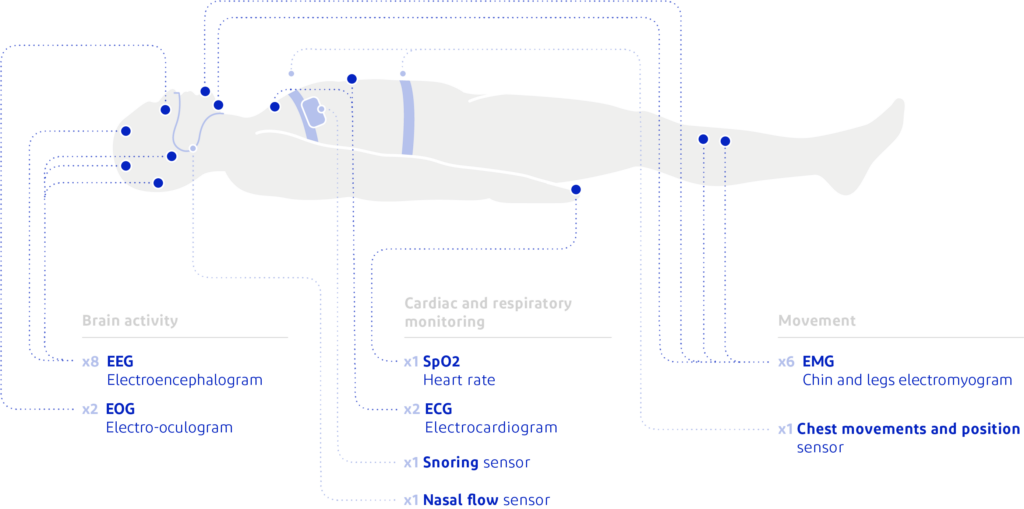Somnophy offers realization and remote interpretation of polysomnography (PSG)
Somnophy is a remote interpretation platform, developed by BioSerenity, provided to sleep units, physicians and technicians looking for an innovative remote interpretation solution.
Our technicians and partner physicians score and interpret PSG recordings from children to adults, 7 days a week.
Advantages
- A network of physicians holding a Sleep Medicine degree with more than 10 years of experience, and teachers or former teachers of the degree, able to perform complete interpretations with medical expertise.
- A network of technicians holding a Sleep Medicine degree able to perform a precise and effective pre-scoring, represented in particular by:
- APTE association
- Opossomm company
- Circle of Sleep Society
- Interpretations of recordings within 6 hours
Key Numbers
- 33% of adults are affected by chronic insomnia, worldwide (Source : Bhaskar et al., 2016)
- 1 Bn individuals are affected by Obstructive Sleep Apnea, worldwide (Source : Benjafield et al., 2018)
Polysomnography Indications
Recommendations and good practices of the French Society for Research and Medicine of Sleep (SFRMS)
Nocturnal Clinical Signs
- Snoring
- Breathing breaks, noisy breathing
- Night sweats
- Oral breathing
- Enuresis, nocturia
- Night terrors
- Difficulty falling asleep
- Multiple awakenings at night
Daytime clinical Signs
- Morning headaches
- Daytime sleepiness
- Hypertension
- Behavioral disorders (aggressiveness, hyperactivity, attention disorders, memory disorders)
Mandatory Maintenance of Wakefulness test, for Group 2 licence applications
People with any of the following duties :
- Truck driver
- Public transport driver
- Taxi driver
- Driver for chauffeur-driven vehicle rental
- Paid transportation of students
- Ambulance services
- Driving School Instructor
What does a polysomnography evaluates ?

Interpretation and realization of PSG and wakefulness tests, alone or in combination
- Diurnal assessment of vigilance or sleepiness by iterative tests
- Polysomnography from 4 to 8 hours, without video recording
- Polysomnography from 4 to 8 hours, with video recording
- Polysomnography from 8 to 12 hours, without video recording
- Polysomnography from 8 to 12 hours, with video recording
- Polysomnography from 12 to 24 hours, without video recording
- Polysomnography from 12 to 24 hours, with video recording
